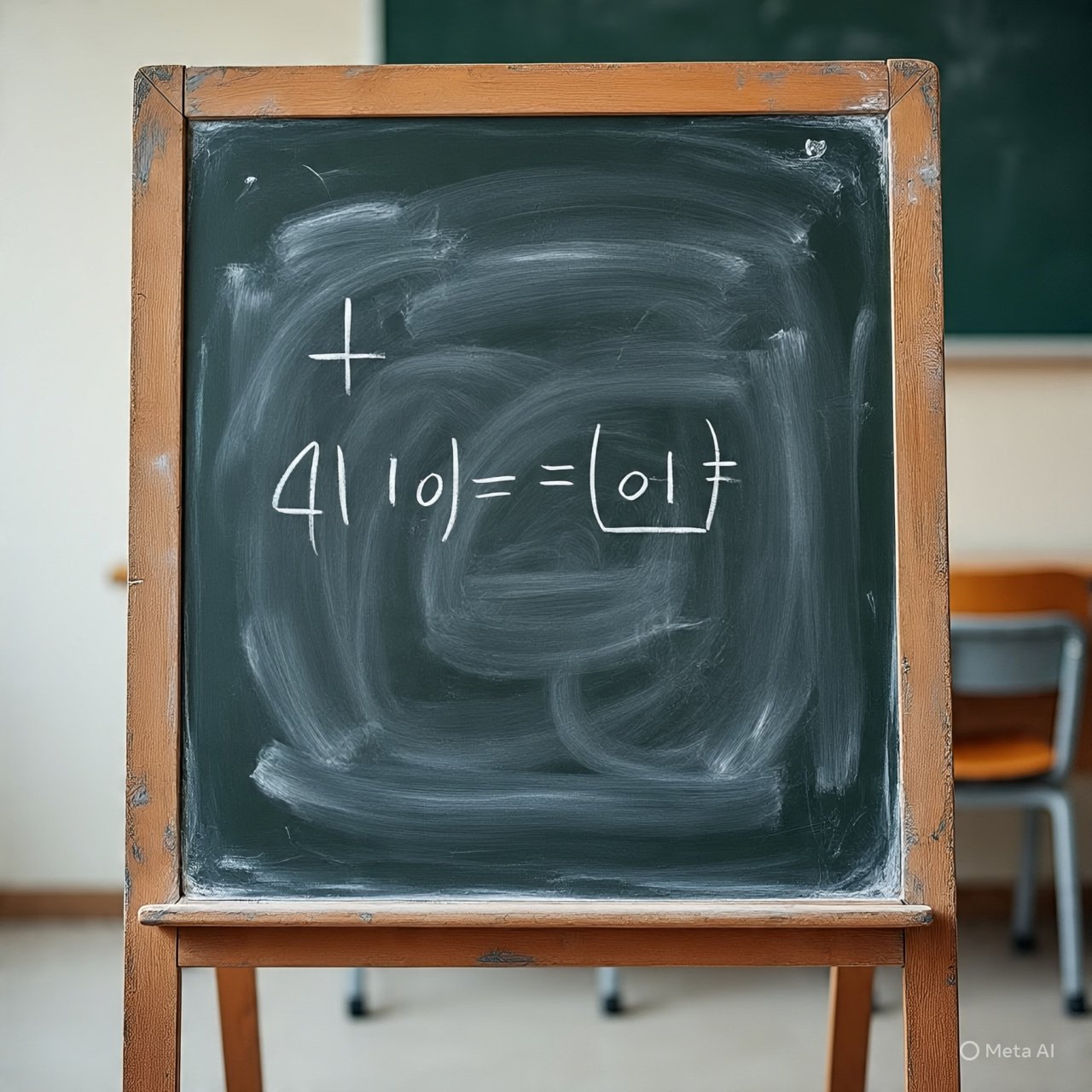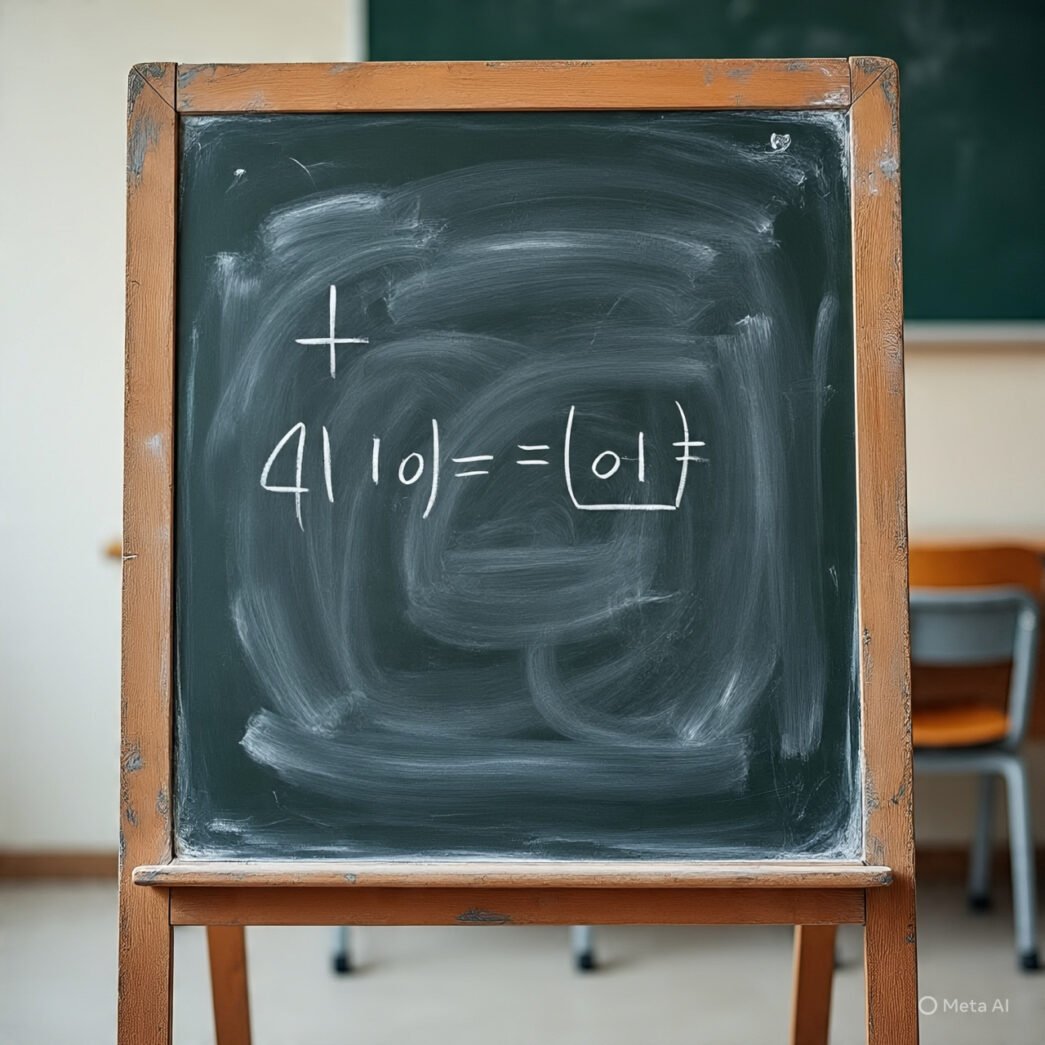BY TOSIN ADEOTI
When I first read yesterday’s news that mathematics would no longer be a compulsory subject for students seeking admission into the Arts and Humanities, I didn’t believe it. Not because the Nigerian government is incapable of radical policy changes, but because the logic felt inverted. How could a country struggling with poor numeracy and fragile reasoning think that removing mathematics from its curriculum would make things better? The other day, someone made the apt observation that the average Nigerian is so poor at measurement that we find it difficult to imagine 3 feet or 3 kilometres, or even how huge 1 billion is. And our next step is to remove mathematics from the curriculum of one-third of our student population in senior secondary school?
What could be the reason? Well, when I checked, the federal ministry of education explained the reform in simple terms: to eliminate unnecessary barriers to tertiary education. The argument was that every year, millions sit for the Unified Tertiary Matriculation Examination, yet less than half gain admission. The bottleneck, the ministry said, often comes from stringent requirements, especially mathematics. By loosening that rule, they hoped to create opportunity and extend fairness.
At first glance, it sounds noble. Education should be inclusive. No one should be locked out of university because they struggle with quadratic equations or trigonometric identities. But inclusion without structure is chaos disguised as compassion. The goal of education cannot be only to make entry easier. It must also prepare people to think and reason once they get in.
Advertisement
Mathematics is not about becoming a mathematician. It is about clarity of thought. It teaches precision, attention, and sequence. It shapes how we argue, how we see patterns, and how we verify truth. When a student learns how to balance equations, they are quietly learning how to balance life’s variables. When they calculate, they practice patience and logic. To remove mathematics from the path of an artist or writer is to rob them of a tool for discipline.
This misunderstanding is not new. People often reduce mathematics to numbers and formulas, forgetting that it is also a language of reasoning. When the ancient Greeks built their philosophy, they made sure it was grounded in logic and geometry. Plato reportedly inscribed above his academy, “Let no one ignorant of geometry enter here.” He understood that mathematics trains the mind to think clearly, a foundation for philosophy and politics alike. Centuries later, the Renaissance in Europe was powered not only by artists like Leonardo da Vinci (just read Walter Isaacson’s biography of the man to see how much of a mathematician the man is) but also by mathematicians like Fibonacci, who gave structure to the patterns artists painted and architects built. The arts have always walked hand-in-hand with mathematics.
So, mathematics is important for the Nigerian art scene. A musician negotiating royalties on Spotify must understand percentages and digital metrics. A film producer working in Nollywood must know profit margins and market analytics. A journalist analysing inflation needs statistical literacy. Even the poet who wants to publish digitally must interpret engagement data and royalties. Mathematics doesn’t only belong in laboratories; it belongs in every kind of mind that seeks coherence.
Advertisement
Professor Chike Obi, Nigeria’s celebrated first mathematics PhD holder, reportedly once said that a nation’s progress depends on how well it teaches mathematics. He warned that societies that treat it as optional soon find their intellectual edges blunted. His warning was not about producing more scientists. It was about ensuring that people could think in structured ways. Those words, spoken half a century ago, now sound prophetic.
I have seen supporters of the new policy argue online that Nigeria’s admission crisis is evidence that the system must change. They claim that outdated requirements, not lack of preparation, keep bright students from advancing. They say inclusion will bring fairness, that the country needs more access, not more gatekeeping. But the question is not whether the gates should open wider. It is whether we are building stronger doors behind them.
The country’s real problem lies earlier, in how mathematics is taught, not in whether it should be required. Any educationalist would tell you that there are no difficult courses, only bad teachers. Students fear mathematics because for decades, it has been taught without context, stripped of life and imagination. Many classrooms reduce it to formulas recited without understanding. The failure is in method, not in necessity. Instead of fixing the foundation, we are knocking down the pillar.
Around the world, the trend is moving differently. Finland still integrates mathematics into creative disciplines. Singapore continues to make it central to its national curriculum. Both countries connect numbers to reasoning and design. They understand that critical thinking grows from both narrative and logic. Nigeria, meanwhile, seems to believe that creativity and reasoning should live apart.
Advertisement
Okay, someone argued that in the UK, students drop mathematics after GCSEs (around age 16) if they wish to specialise in the arts. But seriously? Have you seen the education ranking of the UK recently? Do you want to study what is working in Finland (ranked No 1), and Netherlands and South Korea and China, or the UK?
There are consequences to this thinking. Employers already lament the lack of analytical ability among graduates. Many can speak fluently but cannot reason sequentially. They struggle with basic data, cannot interpret graphs, and find it difficult to solve open-ended problems. These are not failures of intelligence. They are failures of structure. When we remove mathematics from education, we weaken that structure further.
The irony is that mathematics already sits at the heart of art and society, often invisibly. In music, rhythm follows ratios. In literature, structure obeys logic. In architecture, beauty depends on balance and geometry. Even in politics, policy depends on data interpretation and probability. To say mathematics is irrelevant to the arts is to forget how deeply it lives in human creativity.
In a way, this new reform captures a mood that has settled across parts of Nigerian life: the desire for quick fixes. If something is difficult, remove it. If standards are high, lower them. If the road is rough, take a shortcut. But the world does not reward shortcuts. It rewards preparation. A country that stops teaching its citizens how to think rigorously will eventually depend on others to do its thinking for it.
Advertisement
Yes, there are thousands of students each year who fail mathematics and lose admission opportunities. That is tragic. But the solution is not to eliminate the subject. It is to rebuild how it is taught and how it is understood. Imagine if the same government poured effort into retraining teachers, providing better textbooks, and making mathematics relatable to real life. That would expand access without eroding standards.
The government’s claim that this reform will add up to 300,000 new university admissions each year is bold. But admission is not education. If students enter ill-prepared to reason through complex questions, they will exit no wiser. Expansion is meaningless if it produces graduates who struggle to connect thought to evidence.
Advertisement
This decision also risks widening inequality. Wealthier families will continue to teach mathematics privately. Their children will enter global conversations equipped with reasoning skills that poorer students were told they didn’t need. Over time, that gap will not be one of income, but of intellect.
There is still time to reconsider. The government could hold consultations with students, teachers, education leaders, parents, and employers. It could separate genuine inclusion from misguided compassion. A better policy would ensure everyone learns mathematics in ways that reflect real life, not abstract fear. Because every nation that stopped taking mathematics seriously eventually found that its ability to innovate and compete started to decay.
Advertisement
In 2023, UNESCO reported that numeracy and data reasoning are among the top ten skills employers seek globally. The World Economic Forum’s Future of Jobs Report identified “analytical thinking” and “quantitative reasoning” as core skills that cut across all professions.
Removing mathematics may open a door today, but it closes too many others tomorrow.
Advertisement
When young people lose the discipline of structured thought, they lose the ability to build lasting things. And no society ever prospered by making it easier to think less.
Tosin Adeoti can be contacted via [email protected]
Views expressed by contributors are strictly personal and not of TheCable.



